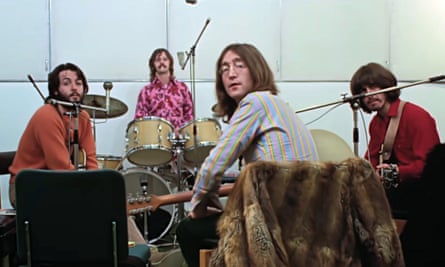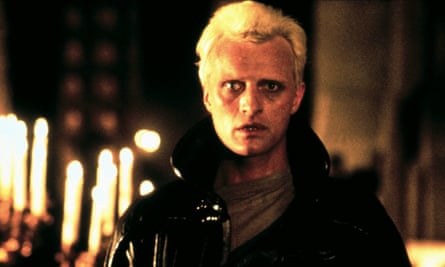Directors are turning to streaming to fulfil their epic visions – and avoid ‘bum ache’ | Film
The bladder police have come for Ridley Scott. The veteran film-maker is about to release his epic Napoleon, starring Joaquin Phoenix as the military genius and emperor of France, which will reignite the ever-smouldering debate about lengthy running times v expansive directorial vision.
In a recent interview Scott has confessed that the “bum ache factor” has meant that he has curtailed Napoleon’s running time in cinemas (to two hours and 38 minutes) but he plans to release the full, unexpurgated version on a streaming service, in an edit that could run to more than four hours.
The competing demands of unfettered artistic vision and commercial necessity have long been a point of contest between the creative and business sides of the film industry; no studio really likes a film longer than two hours, as it reduces the amount of screenings a day, and therefore the amount of tickets sold. Scott, however, was a key figure in showing that the “director’s cut” – originally a contractually obliged edit that was normally discarded – could be a commercial benefit in its own right after releasing a version of his 1982 film Blade Runner a decade later.
The rise of streaming platforms has, however, brought the issue into sharper focus. Without the physical restrictions of the cinema environment, Netflix, Disney+ or Apple TV+ can provide a haven for longer, more expansive work if they feel it will appeal to their subscribers.
The ethics behind it are less clear. Martin Scorsese recently released Killers of the Flower Moon, an epic treatment of the Osage Nation murders in the 1920s, with a running time of three hours and 26 minutes, with many cinemas creating an unofficial 15-minute interval for “toilet breaks” – much to the dismay of the film’s editor, Thelma Schoonmaker. Killers of the Flower Moon was financed by Apple and when it is shown on its streaming platform, Apple TV+, any enforced break will be removed.
Scorsese faced similar issues with his 2019 mobster epic The Irishman, which runs three minutes longer than Killers of the Flower Moon, and found itself the butt of social media jokes suggesting it be watched like a mini-series instead of in one sitting. Even so, traditional studios felt it was financially unviable to take on such lengthy projects, meaning streaming platforms were Scorsese’s only serious option to get the films made.
The practice can also be used to accommodate disgruntled fans. After a long social media campaign, Warner Bros released the “Snyder cut” of its superhero film Justice League, which had been radically altered by stand-in director Joss Whedon after the original director, Zack Snyder, had been forced to leave the film due to a family tragedy. Warner Bros reportedly spent $70m on the Snyder cut, a four-hour-and-two-minute film that was released on the studio’s HBO Max streaming service.
after newsletter promotion

Although it can work both ways – David Lynch’s Mulholland Drive was, notoriously, planned as a TV series before backing fell through – bulky film projects can also simply be converted into streaming series. Peter Jackson’s re-edit of footage shot for the Beatles’ 1970 documentary Let It Be was originally intended as a feature film, before finally emerging as an eight-hour mini-series on Disney+ in 2021.
More controversially, already-released feature films are being repurposed for streaming, with Baz Lurhmann’s 2008 epic Australia converted into six-part series Faraway Downs (due for release on Hulu and Disney+ on 26 November), with Luhrmann saying that “episodic storytelling has been reinvigorated by the streaming world”.
The bladder police have come for Ridley Scott. The veteran film-maker is about to release his epic Napoleon, starring Joaquin Phoenix as the military genius and emperor of France, which will reignite the ever-smouldering debate about lengthy running times v expansive directorial vision.
In a recent interview Scott has confessed that the “bum ache factor” has meant that he has curtailed Napoleon’s running time in cinemas (to two hours and 38 minutes) but he plans to release the full, unexpurgated version on a streaming service, in an edit that could run to more than four hours.
The competing demands of unfettered artistic vision and commercial necessity have long been a point of contest between the creative and business sides of the film industry; no studio really likes a film longer than two hours, as it reduces the amount of screenings a day, and therefore the amount of tickets sold. Scott, however, was a key figure in showing that the “director’s cut” – originally a contractually obliged edit that was normally discarded – could be a commercial benefit in its own right after releasing a version of his 1982 film Blade Runner a decade later.

The rise of streaming platforms has, however, brought the issue into sharper focus. Without the physical restrictions of the cinema environment, Netflix, Disney+ or Apple TV+ can provide a haven for longer, more expansive work if they feel it will appeal to their subscribers.
The ethics behind it are less clear. Martin Scorsese recently released Killers of the Flower Moon, an epic treatment of the Osage Nation murders in the 1920s, with a running time of three hours and 26 minutes, with many cinemas creating an unofficial 15-minute interval for “toilet breaks” – much to the dismay of the film’s editor, Thelma Schoonmaker. Killers of the Flower Moon was financed by Apple and when it is shown on its streaming platform, Apple TV+, any enforced break will be removed.
Scorsese faced similar issues with his 2019 mobster epic The Irishman, which runs three minutes longer than Killers of the Flower Moon, and found itself the butt of social media jokes suggesting it be watched like a mini-series instead of in one sitting. Even so, traditional studios felt it was financially unviable to take on such lengthy projects, meaning streaming platforms were Scorsese’s only serious option to get the films made.
The practice can also be used to accommodate disgruntled fans. After a long social media campaign, Warner Bros released the “Snyder cut” of its superhero film Justice League, which had been radically altered by stand-in director Joss Whedon after the original director, Zack Snyder, had been forced to leave the film due to a family tragedy. Warner Bros reportedly spent $70m on the Snyder cut, a four-hour-and-two-minute film that was released on the studio’s HBO Max streaming service.
after newsletter promotion

Although it can work both ways – David Lynch’s Mulholland Drive was, notoriously, planned as a TV series before backing fell through – bulky film projects can also simply be converted into streaming series. Peter Jackson’s re-edit of footage shot for the Beatles’ 1970 documentary Let It Be was originally intended as a feature film, before finally emerging as an eight-hour mini-series on Disney+ in 2021.
More controversially, already-released feature films are being repurposed for streaming, with Baz Lurhmann’s 2008 epic Australia converted into six-part series Faraway Downs (due for release on Hulu and Disney+ on 26 November), with Luhrmann saying that “episodic storytelling has been reinvigorated by the streaming world”.
